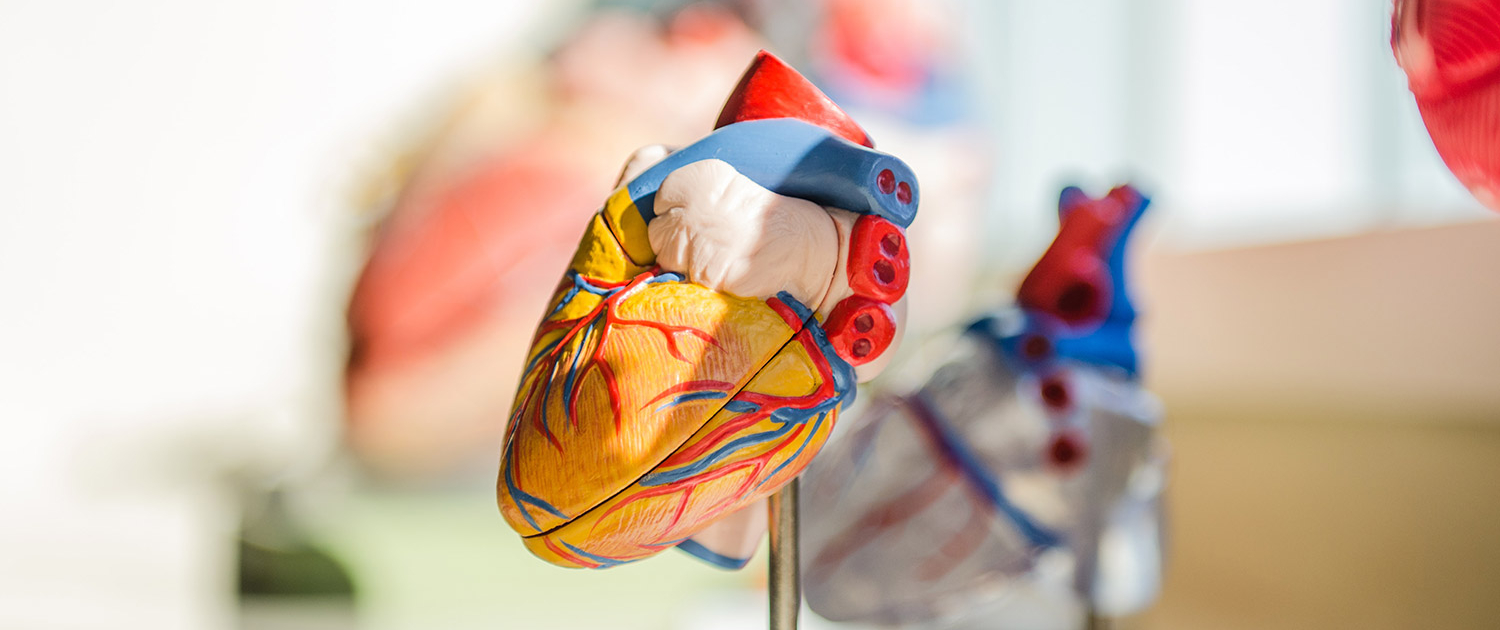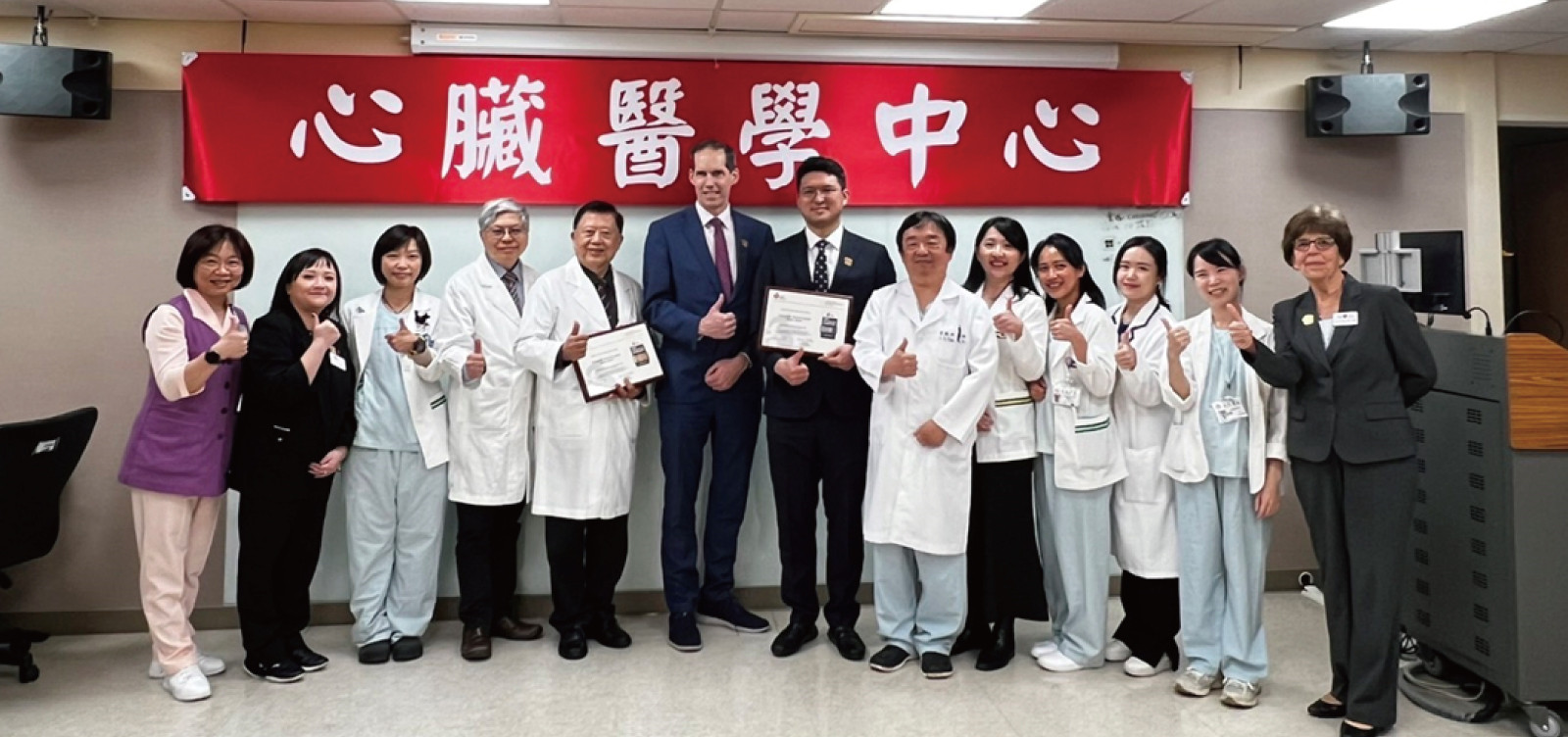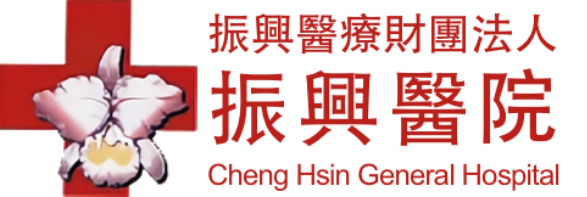The Total Artificial Heart Implantation was performed successfully by Dr. Wei and his team; shortly afterwards, the Simultaneous Heart-and-Kidney Transplantation was performed on this same patient, who survived for nearly 20 years post-surgery. Thus, Dr. Wei and his team set two important world records in the history of medicine.
Heart Center
The Heart Center at Cheng Hsin General Hospital has flourished for 30 years under the firm leadership of Dr. Jeng Wei, our Superintendent and internationally recognized authority on Cardiac Surgery, and is now one of the leading heart center in Asia, which specializes in the diagnosis, management and treatment of cardiovascular diseases.
Currently, the Heart Center consists of four Divisions of Cardiovascular Surgery, Cardiology, Pediatric Cardiology, and Cardiac Nursing as well as two Units of Cardiac Intensive Care and Cardiac Rehabilitation.
To know more about us, please visit: Dr. Wei’s Heart Center
This page was last edited on May, 2025.

Up to May. 2025
The total number of successfully performed heart-transplant operations by our Cardiac Transplantation Team (of the Cardiovascular Surgery Division) amounted to 586, of which 71 cases have survived, post-surgery, for more than 20 years, and 8 cases even survived for more than 30 years. In other words, both of our success and survival rates are the highest in Taiwan, and surpass even those of the US according to the statistics published by the Organ Procurement and Transplantation Network (OPTN) as well as the Scientific Registry of Transplant Recipients (SRTR).
The Heart Center is really much more than an assembly of top-notch cardiac surgeons and cardiologists, or a stock of high-tech equipment and facilities.
One quick glance at the landmarks in our history tells just how far the Heart Center has come, and how relentlessly Dr. Wei and The Heart Team have been in pursuit of the most human, efficient, painless, sensitive, and well-rounded cardiac healthcare:
In 1996
In 1997
The Transradial Cardiac Catheterization technique, most pioneering then in Taiwan, was fully developed by the Cardiology Division, and then incorporated into “heart cath” to reduce the patient’s feelings of pain and discomfort during the procedure. Later in 2006, the Transradial Cardiac Catheterization technique was awarded the Symbol of National Quality (SNQ).
In 1998
To repair a patient’s left ventricular rupture, Dr. Wei and his team performed the Cardiac Auto-Transplantation Procedure successfully, and set another new medical world record.
In 1999
The groundbreaking Beating-Heart Coronary Artery Bypass technique was fully developed and has since then provided, particularly, elderly high-risk patients with a safer option during the heart surgery.
In 2001
The Nil Blood-Transfusion Heart-Transplant was successfully performed on a two-year-old child; once more, Dr. Wei and his team set an amazing world record in the medical history.
In 2003
The Heart Center started the first Cardiac Rehabilitation Unit in Taiwan, which has provided our patients with well-rounded, pre- and post-surgery cardiac healthcare ever since. Whereas, the Cardiac Tele-Health-Care Services of the Cardiology Division was created in 2006 and, since then, it has provided patients with 24/7 tele-health monitoring services. The Cardiac Tele-Health-Care Services obtained the SNQ in 2016.
in 2009
Dr. Wei invented the Vascular Ring Connector
(an implantable cardiovascular medical product essential to the Aortic Dissecting Aneurysm Surgery) in 2006 and its application has effectively raised the success rate of the surgery treating aortic dissection conditions, which is above 95% now. The Vascular Ring Connector was approved by the Food and Drug Administration (USFDA) in 2009.
in 2009
Every second counts, when it comes to saving lives!
So the Cardiovascular Hybrid Operation Room, first in Taiwan and second in Asia, was installed in 2009, to create aseptic, multi-functional, surgical space, which enables our cardiac surgeons to buy time and save lives.
In 2009
The Enhanced External Counterpulsation (EECP) system was installed, to provide our patients with a non-intrusive treatment alternative for angina, cardiogenic shock, heart failure, etc.
in 2012
Advanced coronary artery disease
(also known as advanced ischemic heart disease) is a complex condition that often involves difficult decisions, but charting a clear path through the shared decision-making process is possible. The Shared Decision-Making Process was first introduced in 2012 and has worked wonders ever since. In shared decision-making, patient autonomy is taken seriously, and the patient is allowed to explore the treatment options recommended by their medical doctors, and find the one that’s most appropriate.
In 2013
Dr. Wei recruited the best available cardiologists, cardiac surgeons, imagining specialists, and anesthesiologists at the time, to perform Transcatheter Aortic Valve Replacement (TAVR). The multidisciplinary TAVR team has so far successfully performed 1100 TAVR procedures: its success rate (98%) is the highest in Asia, and our oldest TAVR case aged 102 when receiving the surgical treatment.
If you are looking for the best cardiac healthcare provider, now you must know that you need to look no further. Obviously, your best choice can be no other than the Heart Center at Cheng Hsin General Hospital.
Since the prevalence rate of Heart Failure (HF) has been ever on the increase, and managing HF can be tremendously devastating for both those who have the diagnosis, and their family members, the Heart Center invited also pharmacists, nutritionists, physiotherapists, and psychiatrists to team up with the cardiac doctors and specialists, to form the Heart Failure Healthcare Team in 2017.
It’s important to note that heart failure is a serious and growing health issue not only in Taiwan but worldwide. According to the World Health Organization, heart failure affects an estimated 26 million people worldwide, and its prevalence is increasing due to an aging population and rising rates of comorbidities like hypertension and diabetes.
Reducing the burden of heart failure requires a comprehensive approach that includes prevention, early detection, and effective management of the condition. This includes lifestyle modifications such as diet and exercise, controlling risk factors like high blood pressure and cholesterol, and appropriate use of medications and medical procedures.
Achieving international standards in heart care, as recognized by the American Heart Association, is a significant accomplishment and a testament to the dedication and expertise of the healthcare professionals at Cheng-Hsin Hospital. It highlights the hospital’s commitment to providing high-quality care and improving patients’ outcomes.
It’s important to have a multidisciplinary team involved in patient’s care, and to tailor treatments to each patient’s individual needs and stage of the disease. Medications and cardiac rhythm management can be effective in preventing heart failure from worsening, but for those in the end stage, more advanced interventions like ventricular assist devices or heart transplants may be necessary. It’s great to hear that our hospital has a complete care plan in place and works together to provide the best possible care for these patients.
It was a significant achievement for the hospital to be awarded the Golden Award Plus certification by the American Heart Association. This recognition underscores our commitment to excellence and will empower us to further enhance the quality of care for patients with heart failure. We are dedicated to maintaining this standard and continuing to improve. Keep up the good work!

Cardiovascular surgeons

Jen-Chen Yang




































 Mon~ Fri 8am~5pm.
Mon~ Fri 8am~5pm.


